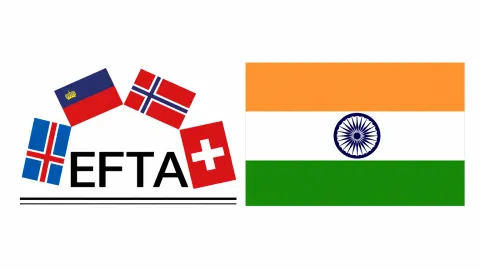Drawing Jurisdictional Limits: Reflective Loss and Dual Nationality in the Alicia Grace v. Mexico Award
August 28, 2025
On 19 August 2024, a UNCITRAL tribunal rendered a Final Award in the dispute Alicia Grace et al. v. Mexico, concerning a series of contracts between Pemex, the Mexican State-owned oil enterprise, and the corporate group Integradora de Servicios Petroleros Oro Negro (“Integradora”).
According to the Claimants—a group of U.S. companies and individuals, some of whom also hold Mexican citizenship—the host State's authorities attempted to drive Integradora and its subsidiaries out of business to revoke the contracts concluded with Pemex. Such a course of action would have resulted in several violations of the North American Free Trade Agreement (“NAFTA”).
Following the Respondent's jurisdictional objections, the Tribunal first had to decide whether, under the NAFTA, the Claimants: i) qualified as nationals of another State party and held a covered investment; and ii) had legal standing to bring claims under Articles 1116 or 1117.
The Award’s significance lies in the answers it provides to these legal issues. On the one hand, in addressing claims by dual nationals, the arbitrators resorted to the “dominant and effective nationality” test to determine whether the Claimants could qualify as investors under the applicable international investment agreement (“IIA”). On the other hand, in dealing with shareholder claims, the Tribunal departed from the well-established practice in investment arbitration to allow investors to recover “reflective loss”, i.e., losses suffered indirectly as a result of measures directed against the corporation. This post analyses both aspects.
Denying Jurisdiction to Dual Nationals: The “Dominant and Effective Nationality” Test
In dealing with the first jurisdictional objection, the Tribunal was confronted with the vexata quaestio as to whether an individual holding the nationality of two States parties to an IIA can qualify as an investor under the latter, thus being able to commence proceedings against one of them.
Unlike other IIAs, the NAFTA did not contain provisions addressing claims by dual nationals. The issue had thus to be solved by means of interpretation, following the rules contained in the 1969 Vienna Convention on the Law of Treaties (“VCLT”).
In accordance with Article 31(3)(b) of the VCLT, having thus due regard to the subsequent practice of the Contracting Parties on dual nationality, the Tribunal determined that the NAFTA allows dual nationals to bring claims, provided they demonstrate that their dominant and effective nationality is different from that of the Respondent State (paras. 473-75). This test—rooted in the customary rules of diplomatic protection—focuses on the claimant’s genuine link to the State, rather than on the formal status conferred under domestic law.
In greater detail, the Tribunal took this principle into account as it was “well-established [. . .] in general international law” and, moreover, its application was the common understanding of the Parties (para. 474). Indeed, the arbitrators highlighted that the decision to incorporate the dominant and effective nationality doctrine in this case “must not be read as an abstract and generalizable precedent” (para. 463), but rather as a matter of appropriate treaty interpretation of the NAFTA provisions under the VCLT and in coordination with 1976 UNCITRAL Arbitration Rules. In applying this rule, the Tribunal carefully reviewed all the Claimants’ ties to both Mexico and the U.S., including personal and familial ties, place of residence, and—most importantly—the centre of gravity of their economic affairs.
Based on this analysis, the Tribunal prioritised the Claimants' real and substantial connections and ultimately determined that it lacked jurisdiction ratione personae over the claims of Mr. Williamson-Nasi and Mr. Cañedo White, as their relevant nationality for treaty protection purposes was that of Mexico, the Respondent State (paras. 491, 499).
By incorporating this principle into its reasoning, the Tribunal’s analysis differs from that taken by other investment tribunals, which have found that the dominant and effective nationality doctrine is not applicable in the context of investment treaty arbitration, as such arbitration constitutes a special regime derogating from the rules of diplomatic protection. In doing so, the Alicia Grace Tribunal concurred with a smaller body of cases (including Manuel Garcia Armas v. Venezuela and Santamarta v. Venezuela, discussed here and here), which support the application of the principle on the basis that it is part of general international law and is therefore applicable unless lex specialis provides otherwise. To put it in other words, in these tribunals’ understanding, the dominant and effective nationality test can be used—in the absence of explicit treaty language to the contrary—as a tool to assess investor standing under the relevant IIA.
The Inadmissibility of Shareholder Claims for Reflective Loss
Moving to the second issue, the Tribunal had to rule on whether—under Article 1116 of the NAFTA—the remaining Claimants (i.e., those fulfilling the nationality requirements), in their capacity as shareholders of Integradora, were entitled to claim reflective loss. In this respect, the Parties offered different interpretations of Article 1116, pursuant to which:
1. An investor of a Party may submit to arbitration [. . .] a claim that another Party has breached an obligation [. . .] and that the investor has incurred loss or damage by reason of, or arising out of, that breach.
Moreover, the Tribunal had to consider the relationship between Articles 1116 and 1117 of the NAFTA, the latter of which establishes that:
1. An investor of a Party, on behalf of an enterprise of another Party [. . .] that the investor owns or controls [. . .], may submit to arbitration [. . .] a claim that the other Party has breached an obligation [. . .] and that the enterprise has incurred loss or damage by reason of [. . .] that breach.
It is thus apparent that the NAFTA provided investors with a choice: under Article 1116, an investor could act in its own name, claiming compensation for damage suffered following the host State’s conduct; on the other hand, pursuant to Article 1117, the same investor could bring an action on behalf of its corporation (“derivative action”).
In such a context, the Claimants contended that a share loss in value could be recovered pursuant to Article 1116 of the NAFTA, alleging that any other conclusion would be inconsistent with the protection afforded by the treaty to shares owned in a local corporation: a well-known topos in investment arbitration (see Suez v. Argentina, para. 49, and Daimler v. Argentina, para. 91). After all, the treaty contained no explicit prohibition on claiming reflective losses. Moreover, they referred to the case law of NAFTA tribunals, which “overwhelmingly declined to adopt the restrictive interpretation of Articles 1116 and 1117 advocated by México” (see Pope & Talbot , paras. 78-80, and GAMI v. Mexico, paras. 29-33).
Contrariwise, Mexican authorities denied that the shareholders could bring a reflective loss claim, relying on the (domestic) principle of separate legal personality—whereby the corporation, as a distinct legal entity, holds its own rights and duties. To further advance such interpretation, the Respondent State recalled the jurisprudence of international courts and tribunals on diplomatic protection, which have consistently found reflective loss claims inadmissible to avoid uncoordinated parallel proceedings and conflicting outcomes.
Moving from the rules enshrined in Articles 31 and 32 of the VCLT, the Tribunal pointed out the need to read Articles 1116 and 1117 of the NAFTA in conjunction, since “they provide an immediate context to each other” (para. 522). At the same time, the Tribunal stressed that many decisions that the Claimants relied upon were either too old or failed to properly engage with treaty interpretation pursuant to the VCLT. On the merits, the Tribunal concluded that under Article 1116, a shareholder could only claim for compensation for interferences with its own personal rights (such as the right to receive declared dividends or to attend general meetings), and are therefore prohibited from claiming reflective losses. On the other hand, Article 1117 “governs the capacity of investors to appear on behalf of a specific third party” (para. 532), i.e., its own corporation, to which any compensation shall be awarded.
To bolster this conclusion, the Tribunal relied on the subsequent practice of the NAFTA Contracting Parties under Article 31(3)(b) of the VCLT, noting their consistent position that reflective loss claims are inadmissible under Article 1116, and that the derivative action under Article 1117 constitutes the sole avenue for shareholders to initiate proceedings in respect of measures affecting their corporation.
Having considered all arguments, the Tribunal found that it lacked jurisdiction over the shareholders' claims against measures affecting the corporation under Article 1116 of the NAFTA. Similarly, the Tribunal concluded that the Claimants could not avail themselves of the derivative action, since they did not meet the requirements to this effect. Accordingly, the Tribunal dismissed all of the claims.
Conclusion
To sum up, the Alicia Grace award stands out both for its contribution to the case law on dual nationality in investment arbitration and for its innovative approach to shareholder claims for reflective loss. Notably, in addressing claims by dual nationals when there is no express treaty provision, the Tribunal did not treat the treaty's silence as dispositive and, instead, relied on the principle of dominant and effective nationality. This approach aligns with the recent case law whereby arbitral tribunals, in establishing their jurisdiction ratione personae under the relevant treaty, resort to general international law—in accordance with Article 31(3)(c) of the VCLT—to address issues of dual nationality (Manuel Garcia Armas v. Venezuela and Santamarta v. Venezuela). This might suggest that, eventually, a trend is emerging in arbitral practice.
On the other hand, the Tribunal's rejection of shareholder claims for reflective loss is firmly grounded on a contextual interpretation of Articles 1116 and 1117 of the NAFTA, aimed at preserving the balance of treaty obligations while avoiding parallel proceedings, conflicting outcomes, and risks of double jeopardy. In this regard, the Tribunal's conclusion cannot but be praised. Provisions such as those enshrined in Articles 1116 and 1117 can be found, indeed, in other investment treaties (for instance, Article 10.16 DR-CAFTA, Article 11.16 Korea-US FTA, and Article 14.D.3 USMCA), thus making the Award a valuable precedent. Given that many IIAs are silent on whether claims for reflective loss are admissible, it is contended that the critical stance of the Tribunal should well inform the reasoning of other tribunals dealing with the same issue.
You may also like











